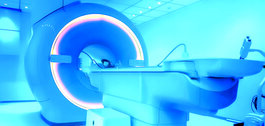


Market and sector review
Global equity markets ended the month of August in positive territory, led by small and mid-cap stocks and sectors such as materials, healthcare, communication services and consumer discretionary. Larger capitalisation equities, and sectors seen as beneficiaries of AI (e.g. information technology and utilities) lagged. As hinted above, healthcare outperformed the broader market, with managed care, facilities, healthcare services posting strong returns, while healthcare supplies and equipment, distributors, and biotechnology had more muted performance.
As the noise around tariffs between the US and the rest of the world seemed to dissipate, following a series of trade deals and implementation delays such as another 90-day “pause” on China’s tariffs, investors’ focus shifted back to the health of the US economy and to what the Federal Reserve (“Fed”) will do next. Although GDP growth remains resilient, underlying inflation is re-accelerating on the back of tariffs, and at the same time the labour market is showing signs of weakness as evidenced by slowing job growth and higher jobless claims. Given its dual mandate of controlling inflation and the promotion of maximum employment, the Fed needs to decide which one of its goals will prevail. At the Fed’s Jackson Hole conference, not only did the Fed’s chairman Jerome Powell reveal a revised policy framework -effectively reverting to its pre-Covid iteration - but he also suggested that the health of the job market is top of mind and opened the door to possible rate cuts soon. Unsurprisingly, this was taken positively by investors and areas more sensitive to interest rates, such as small-cap stocks.
Fund performance
The Company’s NAV increased by 3.4% in August, ahead of its benchmark, the MSCI All Country World Daily Net Total Return Health Care Index, which was up 2.7% (both figures in sterling terms).
Positive contributors relative to the benchmark in August were Zealand Pharma, Avidity Biosciences and H Lundbeck.
There was no company-specific news for Zealand Pharma during the month, although US pharma major Eli Lilly disclosed clinical trial results for its oral obesity drug, Orforglipron, that underwhelmed both on efficacy and tolerability. That disappointment removes a worst-case threat from those developing next-generation injectable drugs for the treatment of obesity, with Zealand Pharma a case in point.
There was no company-specific news flow for Avidity Biosciences but there were reports that Novartis has approached the company for a potential takeover. Both Avidity Biosciences and Novartis declined to comment.
Healthcare outperformed the broader market, with managed care, facilities, healthcare services posting strong returns
H Lundbeck pre-announced a strong set of 2Q25 financial results and raised guidance, with the key strategic brands in areas such as migraine and agitation associated with Alzheimer’s disease driving the upgrade.
Negative relative contributors in the period under review were Medley, Bruker and Alcon.
Medley announced a weak set of 2Q25 results, with the HR platform business their key concern.
Bruker also disappointed, as the demand for life-sciences instruments continues to be under pressure. With issues across the board, the company downgraded guidance for 2025.
Ophthalmology company Alcon once again disappointed with its financial results and downgraded expectations for the 2025 fiscal year. A frustrating update, the main challenge appears to be a sluggish surgical market, with increasing competition highlighted.
Fund activity
We added positions in RadNet, DexCom, and iRhythm Technologies during August.
RadNet operates the largest network of imaging centres in the US and also offers software and technology to run imaging centres more efficiently as well as to help radiographers with diagnosing cancer. The underlying business fundamentals are strong, driven by the shift to new imaging modalities and geographical expansion. The software business is in the middle of a new product launch and the valuation is attractive for the potential growth on offer.
After a period of poor execution, we believe DexCom, one of the leading providers of continuous glucose monitors globally, is back on track to deliver mid-teens revenue growth while also expanding margins at a faster pace than consensus expectations.
Finally, iRhythm Technologies specialises in portable heart monitoring devices. The business has strong momentum, which looks sustainable in the near term with the company set to launch a new mobile cardiac telemetry product.
The new additions were funded by exiting Alcon, AptarGroup, bioMerieux, Bruker and Stevanato Group.



